Pakistani minister says floods caused by climate change effects fueled by ‘developed world’
A senior Pakistani official says the devastating floods that have hit the South Asian nation are estimated to have incurred more than $10 billion loss as the country continues to appeal for international help to cope with the effects of climate change fueled by “the developed world”.
Ahsan Iqbal, Pakistan's planning minister, in an interview with Reuters on Monday, said the economic losses incurred could amount to at least $10 billion.
"I think it is going to be huge. So far, (a) very early, the preliminary estimate is that it is big, it is higher than $10 billion," Iqbal was quoted as saying. "So far we have lost 1,000 human lives. There is damage to almost nearly one million houses."
He said people have "lost their complete livelihood" in the devastating floods that have wreaked havoc across the country since mid-June, stressing that the South Asian country was a victim of climate change caused by the "irresponsible development of the developed world."
The unprecedented flash floods have affected more than 33 million people, over 15 percent of the country's total population.
The unprecedented monsoon rainfall and floods have washed away roads, crops, infrastructure, and bridges. Southern, southwestern, and northern provinces of Pakistan have been the hardest hit.
More than 1,000 people have died in the floods so far, with the country’s climate minister calling the deadly monsoon season “a serious climate catastrophe.”
Sherry Rehman, Pakistan's climate minister, said a third of the nation was under water, creating a "crisis of unimaginable proportions".
Iqbal said the recent floods are worse than those that hit the country in 2010, noting that the reconstruction efforts might take at least five years.
Pakistan has appealed for international help, with some aid and rescue teams from different countries already arriving in the country.
"Our carbon footprint is lowest in the world," Iqbal said. "The international community has a responsibility to help us, upgrade our infrastructure, to make our infrastructure more climate resilient, so that we don't have such losses every three, four, five years."
"Those areas which used to receive rainfall aren't receiving rainfall and those areas which used to receive very mild rains are receiving very heavy rainfall," he hastened to add.
The United Nations will launch a formal appeal Tuesday for $160 million to fund emergency aid for the country.
"The situation is expected to worsen with more ongoing rainfall," Stephane Dujarric, the UN Secretary-General spokesman, said at a news briefing Monday.
There are also growing fears for people living in cut-off communities, with floods hampering the military-led relief effort.
Pakistan’s Prime Minister Shehbaz Sharif, who visited flood-hit areas in the city of Jafferabad in Baluchistan on Monday said the government would provide housing to all those who lost their homes.
US: Police criticizes ‘excessive and disproportionate' force used by ICE on protesters
VIDEO | Press TV's news headlines
Trump administration 'turning against entire ecosystem of human rights'
VIDEO | Leader meets Qur'an reciters, teachers on first day of Ramadan
Two killed, several injured in Israeli strike on refugee camp in Lebanon
US Supreme Court strikes down swath of Trump global tariffs
Tehran says US has not sought zero enrichment, warns war hawks pushing for ‘catastrophic war’
Iran ‘serious’ on achieving a ‘fair’ deal with US, Araghchi tells Lavrov


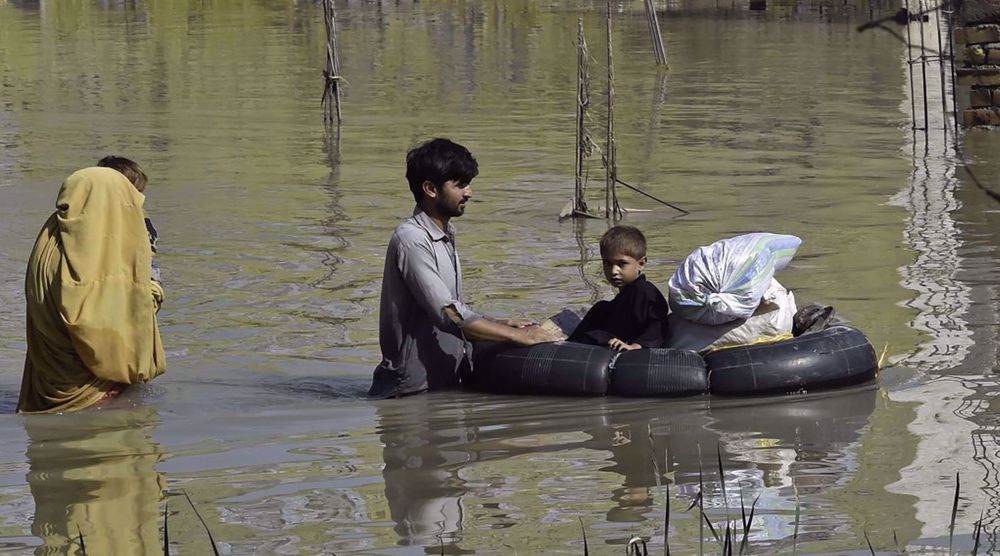
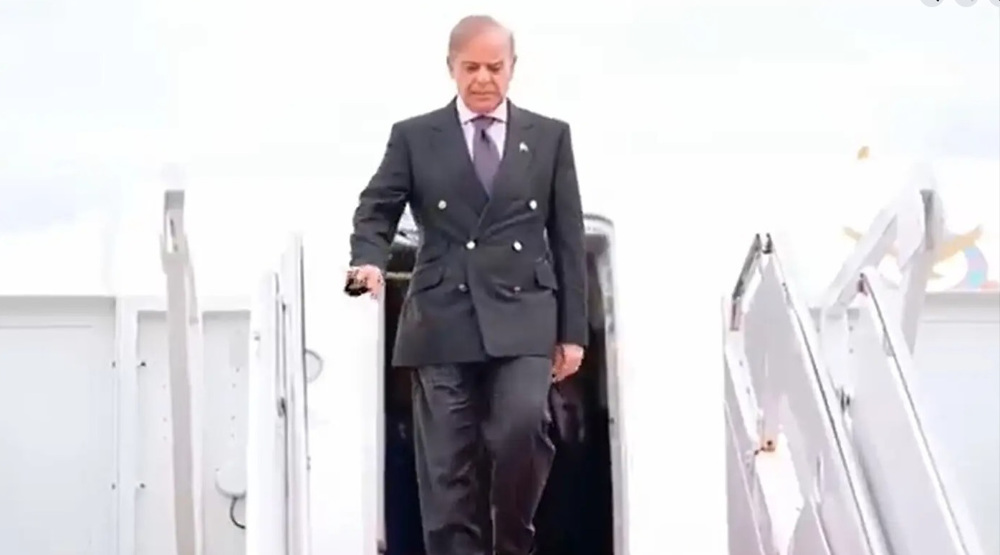

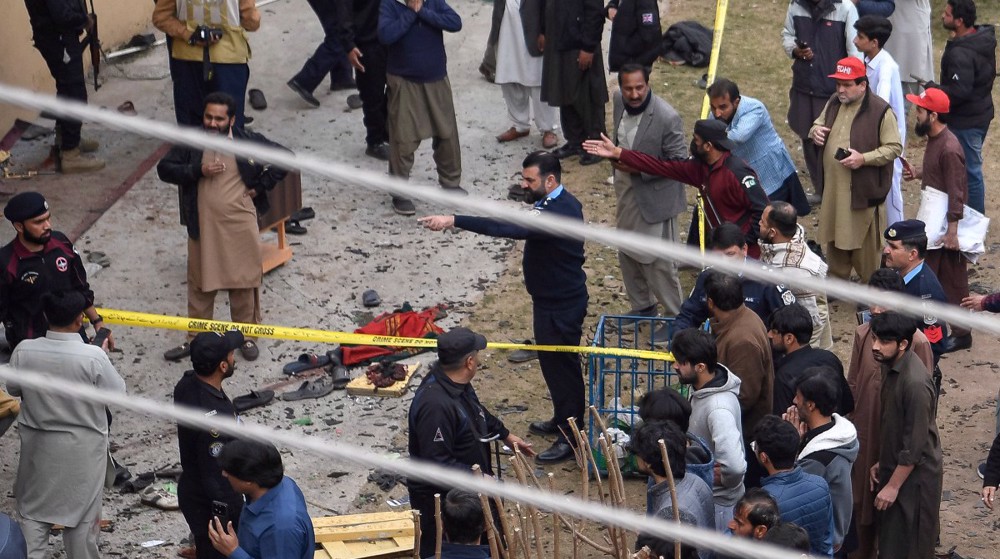



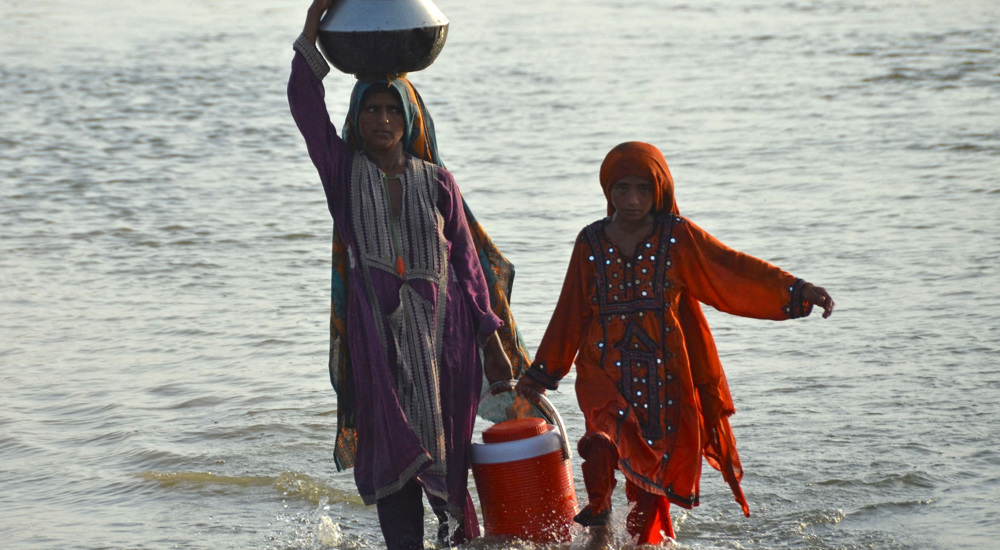

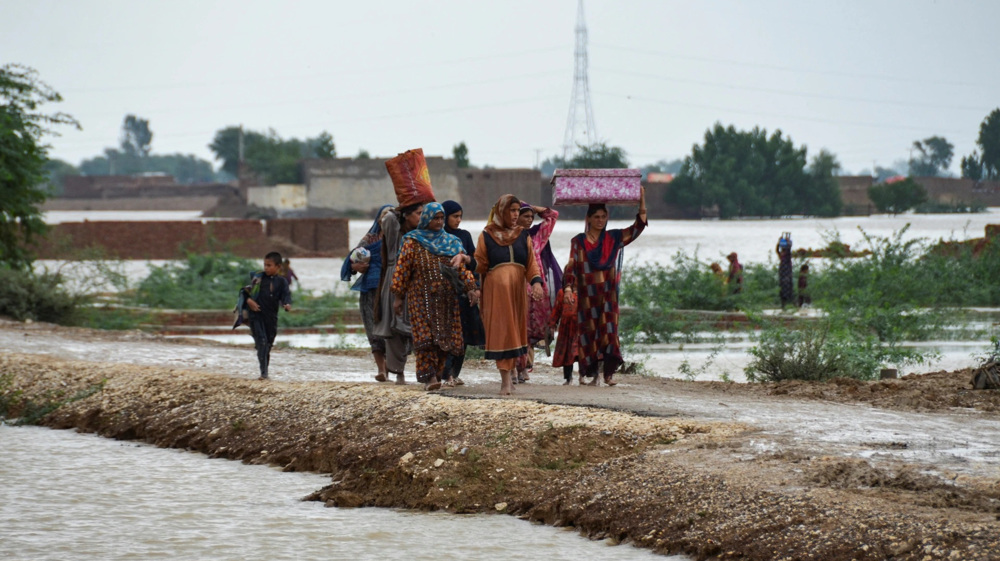
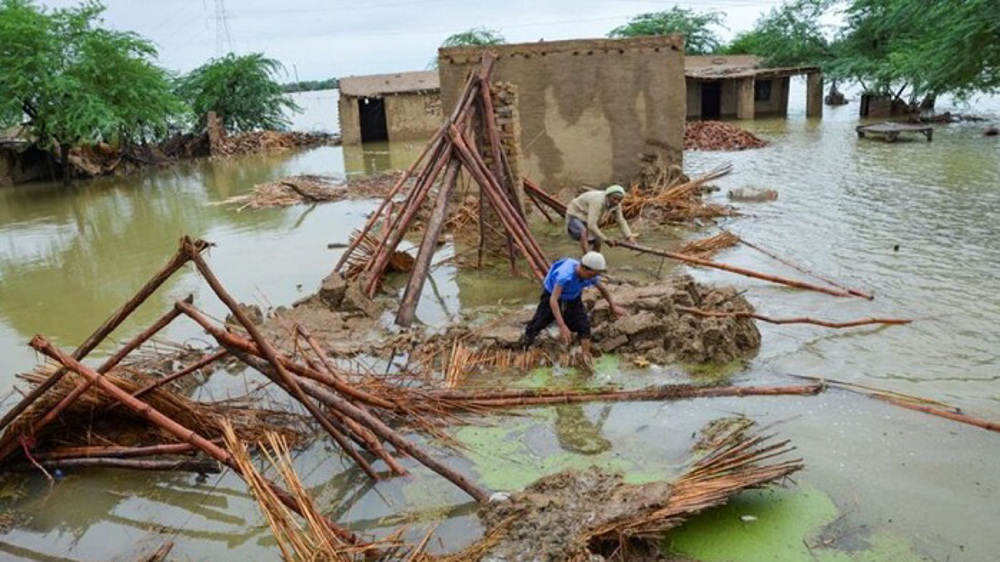

 This makes it easy to access the Press TV website
This makes it easy to access the Press TV website